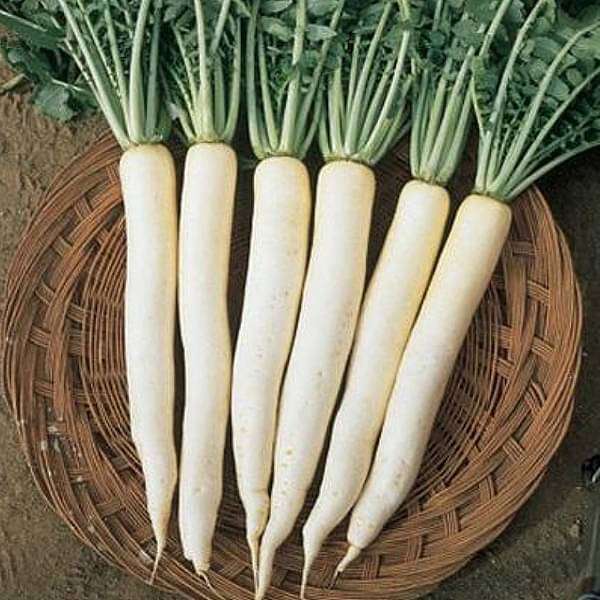
Radish F1 Great Long White - Vegetable Seeds
(MRP Inclusive of all taxes)
- Shipping ₹79 for entire order
- Country of origin: India

(MRP Inclusive of all taxes)
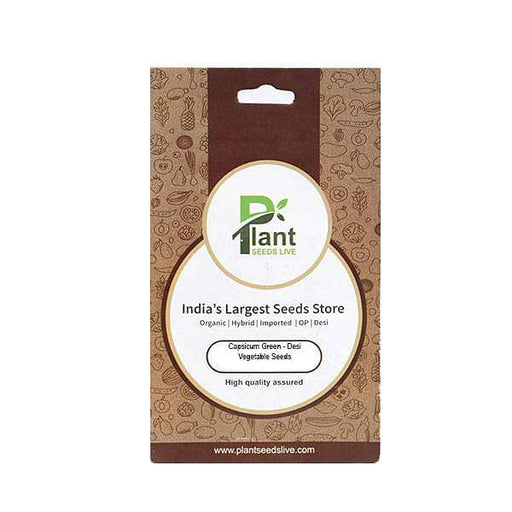
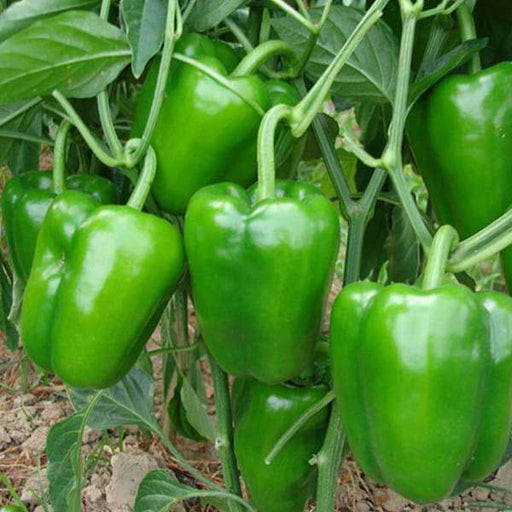 Save 25%
Save 25%
Capsicum Green - Desi Vegetable Seeds Capsicum Green, also known as bell pepper, is a vibrant and nutritious addition to your garden. Thes...
View full details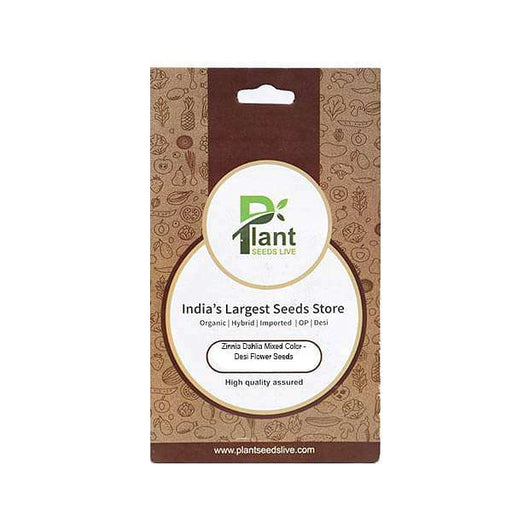
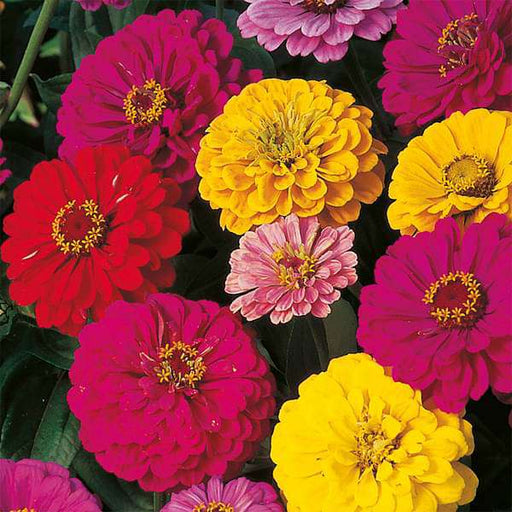 Sold out
Sold out
Zinnia Dahlia Mixed Color - Desi Flower Seeds Transform your garden into a vibrant tapestry of colors with our Zinnia Dahlia Mixed Color -...
View full details
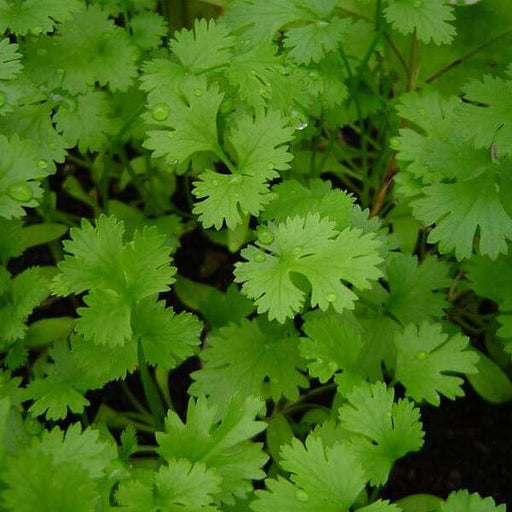 Sold out
Sold out
Coriander Panipat - Desi Vegetable Seeds Coriander Panipat is a premium variety of coriander seeds, cherished for its aromatic leaves and ...
View full details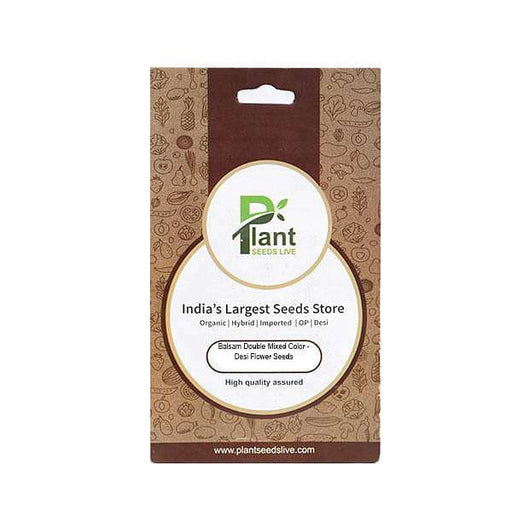
 Save 25%
Save 25%
Balsam Double Mixed Color - Desi Flower Seeds Discover the vibrant beauty of Balsam Double Mixed Color - Desi Flower Seeds, a delightful a...
View full details
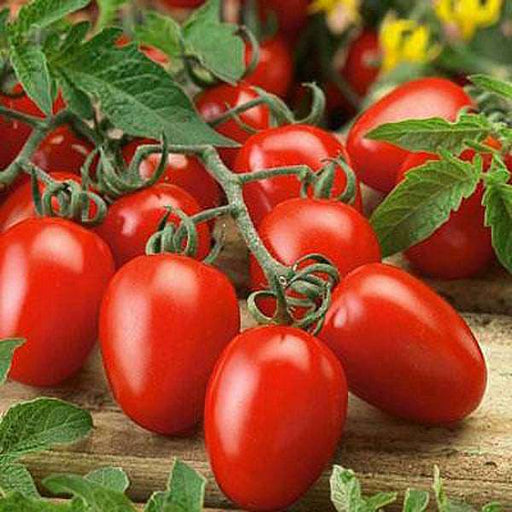 Sold out
Sold out
Tomato Pusa Ruby - Desi Vegetable Seeds The Tomato Pusa Ruby is a premium variety of tomato seeds, renowned for its vibrant red color, jui...
View full details
 Save 25%
Save 25%
Cherry Tomato, Cherry Tomato Honey - Vegetable Seeds Discover the delightful world of Cherry Tomato Honey seeds, perfect for home gardener...
View full details
 Save 25%
Save 25%
Spinach All Green - Desi Vegetable Seeds Introducing the Spinach All Green - Desi Vegetable Seeds, a premium variety of spinach that thriv...
View full details
 Save 25%
Save 25%
Capsicum Green - Desi Vegetable Seeds Capsicum Green, also known as bell pepper, is a vibrant and nutritious addition to your garden. Thes...
View full details
 Sold out
Sold out
Coriander Panipat - Desi Vegetable Seeds Coriander Panipat is a premium variety of coriander seeds, cherished for its aromatic leaves and ...
View full details
 Sold out
Sold out
Tomato Pusa Ruby - Desi Vegetable Seeds The Tomato Pusa Ruby is a premium variety of tomato seeds, renowned for its vibrant red color, jui...
View full details
 Save 25%
Save 25%
Cherry Tomato, Cherry Tomato Honey - Vegetable Seeds Discover the delightful world of Cherry Tomato Honey seeds, perfect for home gardener...
View full details
 Save 25%
Save 25%
Spinach All Green - Desi Vegetable Seeds Introducing the Spinach All Green - Desi Vegetable Seeds, a premium variety of spinach that thriv...
View full details
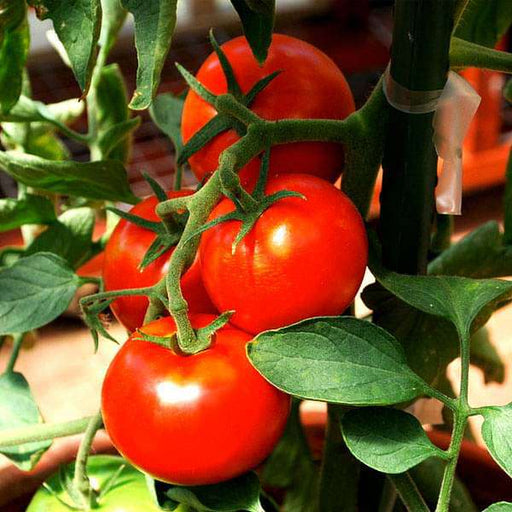 Save 25%
Save 25%
Tomato Ped - Desi Vegetable Seeds Introducing the Tomato Ped - Desi Vegetable Seeds, a premium selection of heirloom tomato seeds that pro...
View full details
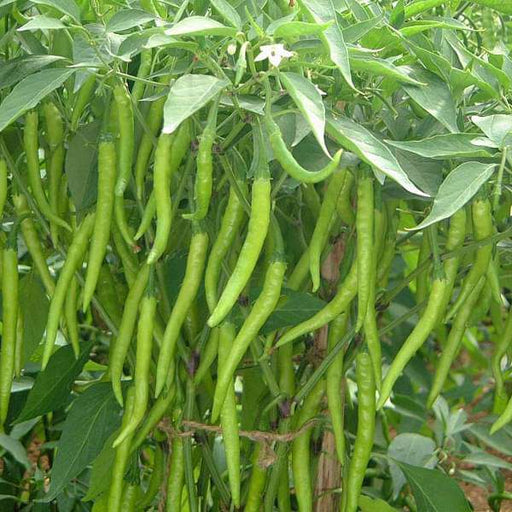 Sold out
Sold out
Chilli Surajmukhi - Desi Vegetable Seeds Introducing the Chilli Surajmukhi, a unique variety of desi vegetable seeds that brings a burst o...
View full details
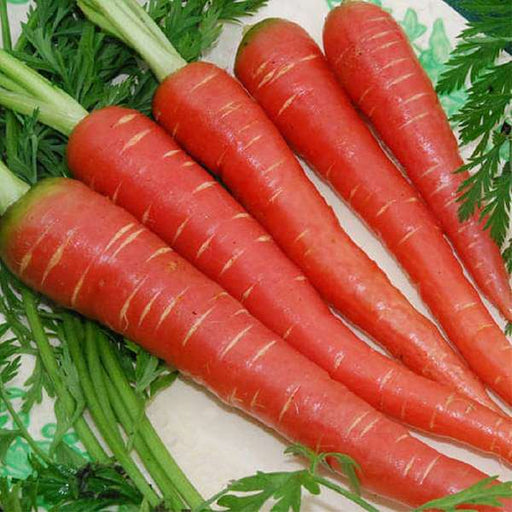 Save 25%
Save 25%
Carrot Red Long - Desi Vegetable Seeds Introducing the Carrot Red Long - Desi Vegetable Seeds, a premium variety known for its vibrant col...
View full details
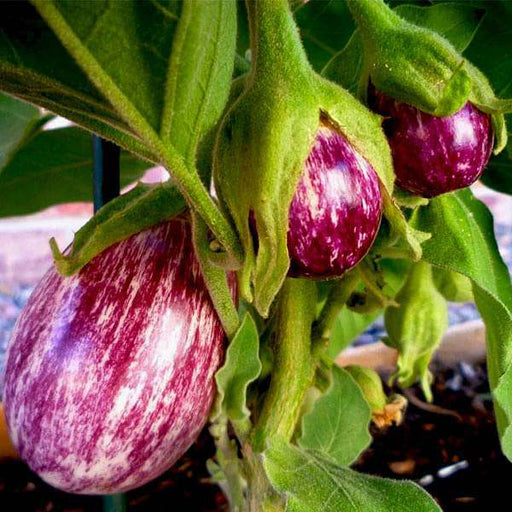 Save 25%
Save 25%
Brinjal Purple Round - Desi Vegetable Seeds Discover the rich flavors and vibrant colors of Brinjal Purple Round, a staple in Indian cuisi...
View full details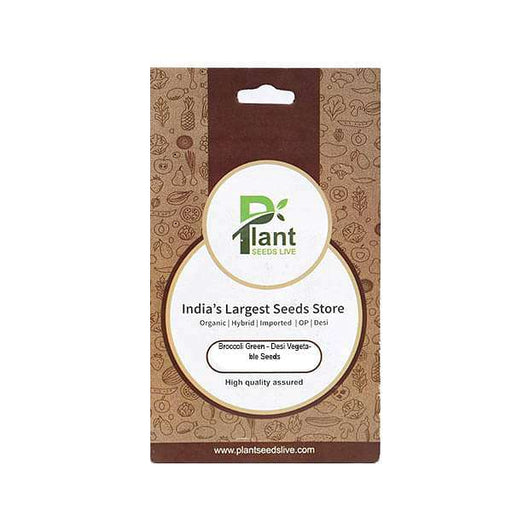
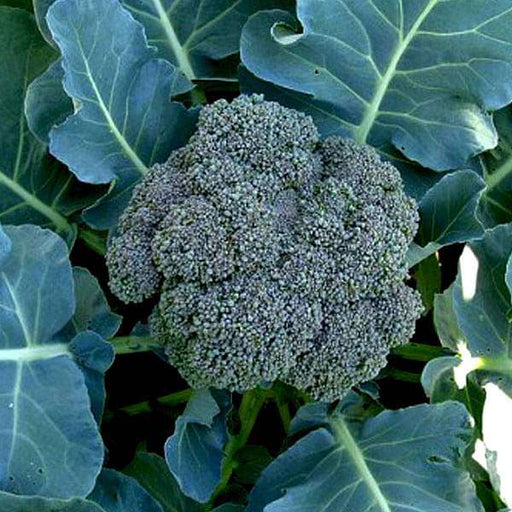 Save 25%
Save 25%
Broccoli Green - Desi Vegetable Seeds Discover the vibrant world of Broccoli Green with our premium Desi Vegetable Seeds. Known for its ri...
View full details
 Save 35%
Save 35%
Best 6 Plants for Perfect Indoor Garden Transform your living space into a lush oasis with our curated collection of the Best 6 Plants for a...
View full details
 Save up to 50%
Save up to 50%
Mini Succulent Garden Pack Transform your space with our Mini Succulent Garden Pack, featuring a delightful collection of 4 any variety beautiful s...
View full details
 Save 30%
Save 30%
5 Best Fragrant Plants Transform your garden or indoor space into a fragrant paradise with our curated selection of the 5 Best Fragrant Plants. Th...
View full details
 Save 24%
Save 24%
Set of 2 Bonsai Looking Grafted Adeniums Transform your indoor or outdoor space with our exquisite Set of 2 Bonsai Looking Grafted Adenium...
View full details Save 45%
Save 45%
Top 4 Die Hard Succulents Pack Transform your indoor or outdoor space with our Top 4 Die Hard Succulents Pack, featuring a curated selecti...
View full details
 Save 30%
Save 30%
5 Best Indoor Plants Pack Transform your living space into a lush oasis with our '5 Best Indoor Plants Pack.' This carefully curated collection fe...
View full details
 Save 25%
Save 25%
Set of 4 Evergreen Air Purifier Plant Pack Transform your indoor space into a lush, green oasis with our Set of 4 Evergreen Air Purifier Pla...
View full details| SrNo | Item Name |
|---|---|
| 1 | Radish F1 Great Long White - Vegetable Seeds |
The Radish F1 Great Long White is a premium variety known for its exceptional length and crisp texture. This heirloom vegetable boasts a striking white color and a mild flavor, making it a favorite among gardeners and chefs alike. With a growth cycle of just 25-30 days, these radishes are perfect for quick harvests, allowing you to enjoy fresh produce in no time.
What sets the Great Long White apart is its unique ability to thrive in various soil types, making it an ideal choice for both novice and experienced gardeners. Its long, cylindrical shape not only looks impressive in the garden but also adds a delightful crunch to salads and dishes. This variety is resistant to common pests and diseases, ensuring a bountiful harvest.
Special features of the Radish F1 Great Long White include its high nutritional value, being rich in vitamin C, potassium, and antioxidants. Additionally, its fast growth rate and adaptability to different climates make it a sustainable choice for environmentally conscious gardeners.
When it comes to radishes, variety is the spice of life! From the classic red globe to the exotic black radish, each type brings its own unique flavor and crunch to the table. The Radish F1 Great Long White is a standout, boasting a crisp texture and a mild taste that makes it a favorite among gardeners and chefs alike. So, whether you're tossing them in a salad or pickling them for a zesty snack, exploring radish varieties is like going on a flavor adventure!
Ready to dig into the world of vegetable gardening? The secret to a bountiful harvest lies in a few key tips. Start with quality seeds, like the Radish F1 Great Long White, and ensure they get plenty of sunlight and water. Don't forget to rotate your crops and keep an eye out for pests. With a little patience and care, you'll be the proud owner of a veggie garden that would make even the most seasoned gardener green with envy!
Who knew that these crunchy little gems could pack such a nutritional punch? Radishes are low in calories but high in vitamins and minerals, making them a guilt-free snack. They’re rich in antioxidants and can aid digestion, boost your immune system, and even help detoxify your body. So, munch on those Radish F1 Great Long Whites and feel good about your health choices—your body will thank you!
Growing radishes is like a race against time—these speedy veggies can go from seed to harvest in just a few weeks! The Radish F1 Great Long White is particularly quick to sprout, making it perfect for impatient gardeners. Just plant them in well-drained soil, give them some sunlight, and watch them grow. Before you know it, you’ll be pulling up those long, white beauties and impressing your friends with your gardening prowess!
If you think radishes are just for salads, think again! The Radish F1 Great Long White can be roasted, pickled, or even turned into a zesty salsa. Their mild flavor makes them versatile enough to complement a variety of dishes. So, get creative in the kitchen and experiment with radish recipes that will have your taste buds dancing. Who knew these little roots could be the star of the show?
In a world full of choices, organic vegetable seeds stand out like a beacon of health. The Radish F1 Great Long White is not only delicious but also grown without synthetic pesticides or fertilizers. By choosing organic, you’re not just nurturing your garden; you’re also supporting sustainable farming practices. So, plant those organic seeds and feel like a superhero for the planet while enjoying your homegrown veggies!
To grow the perfect Radish F1 Great Long White, you need to create the ideal growing conditions. These radishes thrive in cool weather, so spring and fall are their prime time. They prefer well-drained soil and a sunny spot in your garden. Keep the soil moist but not soggy, and watch out for those pesky weeds. With the right conditions, you’ll be rewarded with a bountiful harvest that will make your neighbors green with envy!
Did you know that radishes can play nice with other plants? Companion planting is the art of pairing plants that benefit each other, and the Radish F1 Great Long White is a great team player. They can help deter pests from crops like cucumbers and squash, making them a valuable addition to your garden. So, plant them alongside your favorites and let the radishes do their magic while you sit back and enjoy the show!
After a successful harvest, the last thing you want is for your Radish F1 Great Long Whites to go limp and sad. Proper storage is key! Keep them in a cool, dark place, ideally in the fridge, wrapped in a damp paper towel to maintain their crispness. Avoid washing them until you’re ready to eat, as moisture can lead to spoilage. With these storage tips, your radishes will stay fresh and crunchy, ready to add a pop of flavor to your meals!
Every gardener knows that with great veggies come great responsibilities—like dealing with pests and diseases. The Radish F1 Great Long White can fall victim to aphids, root maggots, and fungal infections. But fear not! Regularly inspecting your plants and using organic pest control methods can keep your garden thriving. Embrace your inner detective and protect your precious radishes from those sneaky invaders!
Harvesting radishes is like unwrapping a present—you never know what you’re going to get! The Radish F1 Great Long White is ready to be pulled when the tops are about an inch in diameter. Gently tug them from the soil, and voilà! You’ve got yourself a fresh batch of radishes. Just remember, the longer you wait, the spicier they can get, so don’t be shy—get in there and enjoy the fruits of your labor!
Radish F1 Great Long White is the superstar of the veggie world! These seeds sprout into long, crisp radishes that are perfect for salads, garnishes, or just munching on. With a delightful crunch and a mild flavor, they’re the perfect addition to your garden and your plate. Who knew gardening could be this tasty
Planting these seeds is as easy as pie—if pie were made of dirt! Simply sow them in well-drained soil, about half an inch deep, and give them some space to grow. Water them regularly, and watch as they transform from tiny seeds into long, white radish wonders. Gardening magic at its finest!
Radish F1 Great Long White loves a cool climate, like a hipster in a coffee shop! Aim for temperatures between 50°F and 70°F. Too hot, and they might bolt; too cold, and they’ll sulk. Keep it just right, and you’ll have a radish party in your garden before you know it!
Patience is a virtue, but with these radishes, you won’t need much! They typically mature in about 25 to 30 days. That’s right—just a month of waiting for crunchy, delicious radishes. It’s like waiting for a pizza delivery, but way healthier and with less grease!
Radishes are like Goldilocks—they want their soil just right! Well-drained, loamy soil with a pH of 6.0 to 7.0 is ideal. Too compact, and they’ll struggle; too sandy, and they’ll feel lost. Mix in some compost, and you’ll have a radish paradise that even Goldilocks would approve of!
Watering is key, but don’t drown them like a bad movie plot! Aim for consistent moisture, watering about once a week or when the top inch of soil feels dry. Too little water, and they’ll be sad; too much, and they’ll be swimming. Find that sweet spot for radish happiness!
Container gardening is the new black!
Pests can be pesky little gremlins! Watch out for aphids, flea beetles, and root maggots. They might try to crash your radish party, but with some neem oil or insecticidal soap, you can send them packing. Keep your garden clean, and your radishes will thank you with their crunchy goodness!
You bet! Those leafy greens are not just for decoration. Radish leaves are edible and packed with nutrients. Sauté them, toss them in salads, or blend them into smoothies. Don’t let those greens go to waste; they’re the unsung heroes of the radish world, ready to add flair to your meals!
Absolutely! These seeds are like the friendly neighbor who brings cookies—easy to grow and rewarding. They germinate quickly and require minimal fuss. If you’re new to gardening, these radishes will boost your confidence faster than you can say “green thumb.” Get ready to impress your friends with your gardening prowess!
Timing is everything, like a well-timed joke! Harvest when the radishes are about 6 to 8 inches long. Gently pull them from the soil, and if they’re firm and crisp, you’ve hit the jackpot! Leave them too long, and they might get woody. So, keep an eye on those beauties!